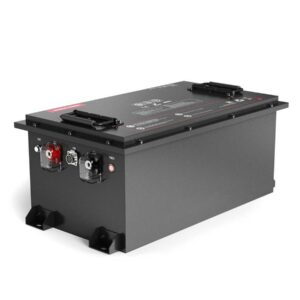
Are zinc chloride batteries any good?
Zinc chloride batteries are a type of dry-cell battery that offer moderate performance for low-drain devices. While cheaper than alkaline batteries, they have lower energy density (about 30–40% less), shorter shelf life (2–3 years vs. 5–7 years for alkaline), and reduced efficiency in cold temperatures. Their 1.5V nominal voltage makes them suitable for clocks, remote controls, and flashlights with intermittent use. Pro Tip: Avoid using them in high-drain devices like digital cameras—their internal resistance causes rapid voltage drop under heavy loads.
What Is the Best Battery for a Diesel Pickup Truck?
How do zinc chloride batteries compare to alkaline?
Zinc chloride batteries use acidic ammonium chloride electrolyte versus the alkaline potassium hydroxide in premium cells. This chemistry limits their continuous discharge capability to 500mA max, while alkaline handles 1A+ sustained. Real-world testing shows zinc chloride lasts 25% shorter in TV remotes but matches alkaline performance in wall clocks.

Beyond basic chemistry differences, zinc chloride cells exhibit faster self-discharge (10% monthly vs. 2–3% for alkaline). Their zinc anode corrodes more readily, increasing leak risks after 18 months. For example, a zinc chloride AA battery typically delivers 1,200mAh capacity versus 2,800mAh in alkaline. Pro Tip: Use zinc chloride only in devices with expiration date labels—their shorter lifespan makes date tracking critical.
| Parameter | Zinc Chloride | Alkaline |
|---|---|---|
| Energy Density | 80 Wh/kg | 120 Wh/kg |
| Max Current | 0.5A | 1.5A |
| −20°C Performance | 40% capacity | 65% capacity |
What devices work best with zinc chloride batteries?
These batteries excel in low-power intermittent-use devices like analog thermostats, LED tea lights, or manual flashlights. Their cost-effectiveness shines in bulk-use scenarios—schools might choose them for classroom calculators needing annual replacement anyway.
Practically speaking, zinc chloride performs adequately in devices drawing ≤50mA continuous. They power quartz wall clocks for 12–18 months versus alkaline’s 24–36 months, but at half the price. Warning: Never use them in smoke detectors—their unpredictable voltage drop during critical moments creates safety risks. A real-world example: Dollar-store zinc chloride AAs successfully powered a desktop weather station for 8 months before needing replacement.
Battery Expert Insight
FAQs
Can zinc chloride batteries leak?
Yes, their acidic electrolyte accelerates zinc can corrosion. Always inspect batteries quarterly in sensitive devices like vintage radios.
Are they environmentally safer than alkaline?
Marginally—zinc chloride contains less heavy metals but still requires proper recycling. Many municipalities classify them with standard household batteries.
